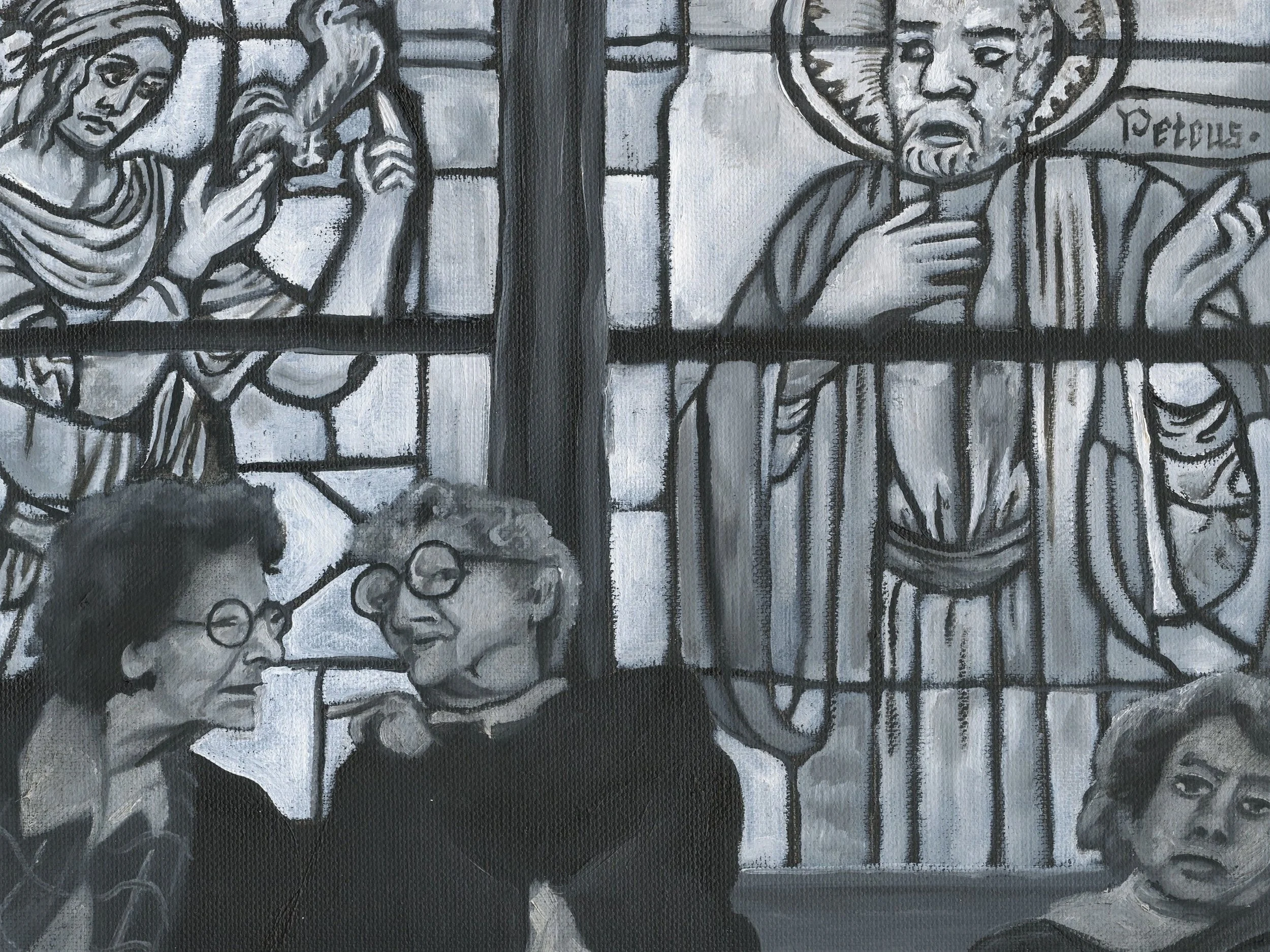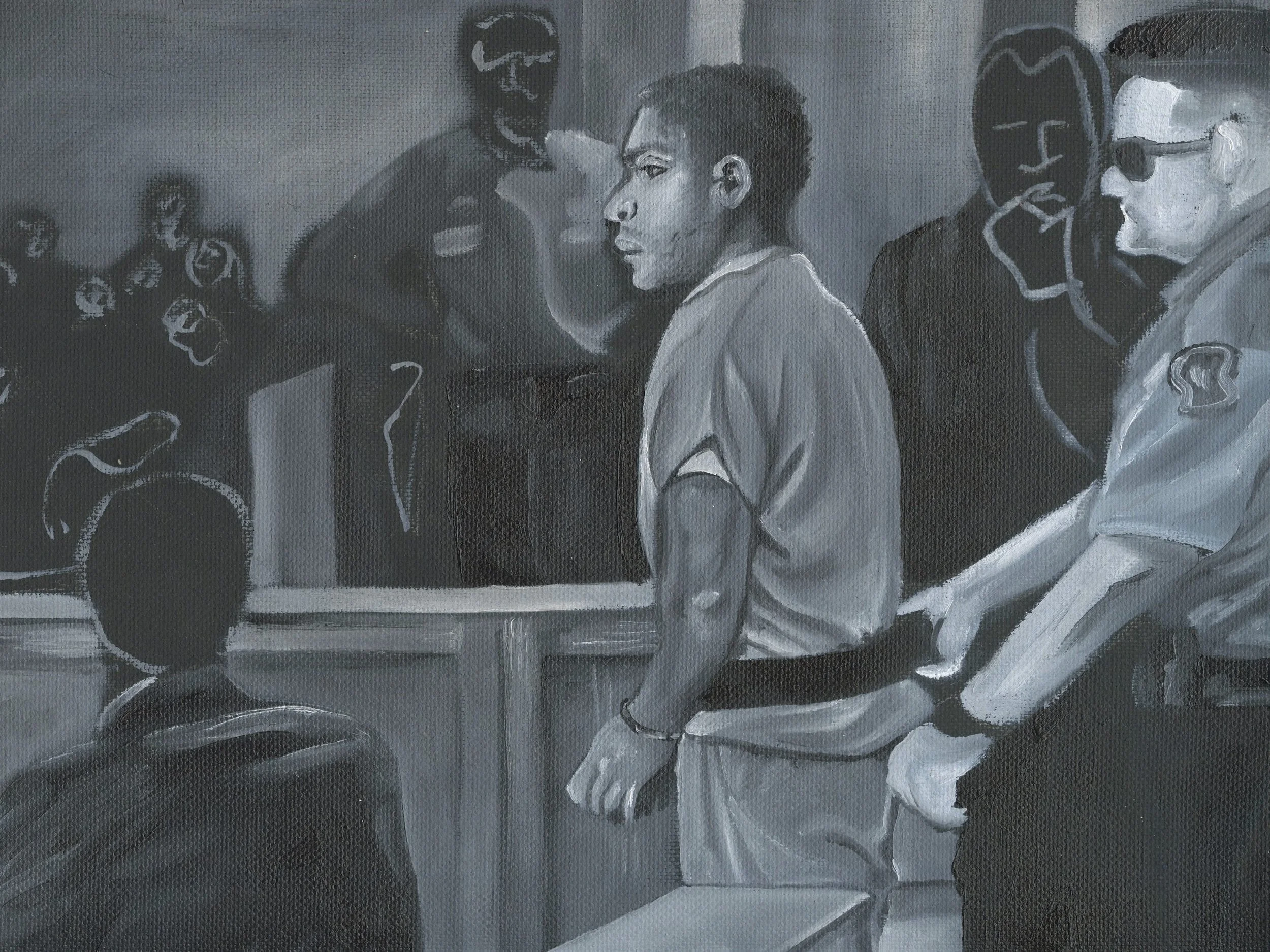Chapter 5: Judgment
The night's stillness was shattered by the arrival of the police, who brought Jesus not to the expected police station but to the town's church. Inside, a committee gathering of pastors and deacons awaited, their stern faces looking at him with self-righteous expressions. Hours slipped away in theological questioning and heated debate as Jesus, stoic in the face of their accusations, stood silent. The darkened church became an unlikely courtroom. As the night waned and the first light of dawn crept in, the gathering of religious leaders, in a fit of anger, pronounced Jesus's teachings heretical.
The echoes of their condemnation lingered as they dragged him to the courthouse at the break of day.
The district judge, though hesitant, found himself trapped in a political landscape. With an impending election looming, a smear campaign on social media about the "vandal on the church steps" had gained traction. The court, swayed by the currents of public opinion, was less inclined to a fair trial. Jesus found himself trapped in a system that sought to silence dissent, casting him as a threat to the established order.
In the courtroom, the judge's reluctance to hear their case was overridden by political undercurrents. The gavel fell, declaring Jesus guilty. Fueled by fear and public opinion, the system had triumphed over the challenging voice that had dared to question the status quo. As Jesus faced his convictions, the town became a parable of the broader struggle between power and dissent. It was a battleground where truth and justice were pitted against the manipulations of a system that sought to maintain its grip on authority.




